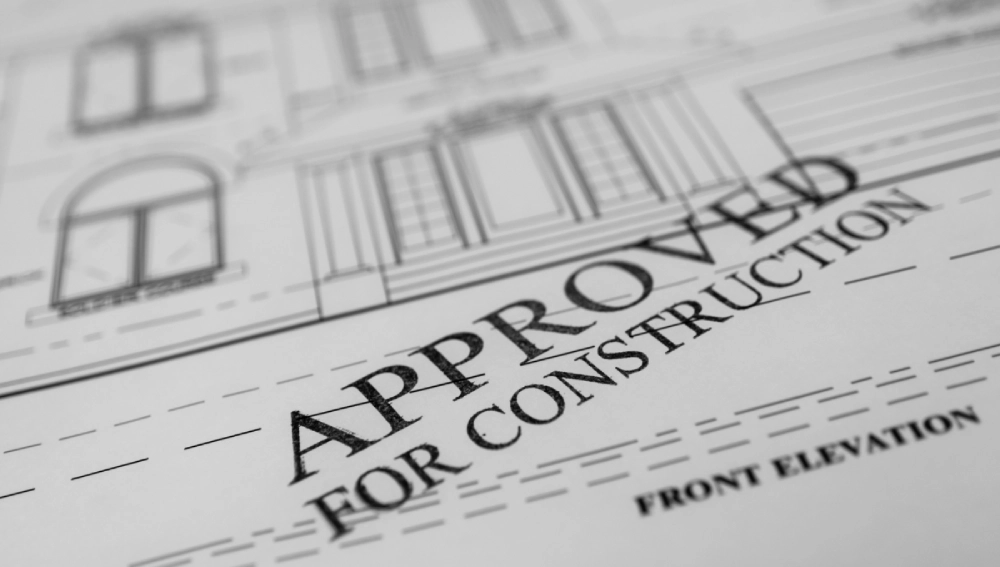Getting a building plan approval is the first step in the construction process. In Tamil Nadu, you need this approval to finish your building project without any project.
You need to follow some rules and regulations while applying for a building plan approval. The relevant authorities will look into it and decide whether the plan is suitable for approval.
Let’s look into the approval rules and regulations for the building plan in Tamil Nadu.
- 1 Building Plan Approval Process
- 2 Key Building Plan Approval Rules in Tamil Nadu
- 3 The documentation required to submit a building plan in TamilNadu:
- 4 Download the building plan approval rules in Tamil pdf
- 5 The authorities responsible for reviewing and approving building plans
- 6 Here, you will find resources that will simplify your building plan approval process:
- 7 FAQs
Building Plan Approval Process
The process involved in building plan approval has many steps. The basic step is that the applicant must submit their plans to the relevant authorities for scrutiny and get the necessary permissions before starting the construction work.
Below is the step-by-step process of getting a building plan approval.
- Prepare the building plan (ensure you adhere to the rules and guidelines while planning).
- Submit the application form with the relevant documents to the Local Planning Authority (LPA). You can find the application online on the LPA’s website.
- Verification. The LPA will verify your plan and check whether it adheres to the rules and regulations. They might even request a site inspection.
- Building plan approval. Based on your plan, the necessary documents, and other data, your LPA will either approve or reject your building plan.
Key Building Plan Approval Rules in Tamil Nadu

Building projects in Tamil Nadu require approval under the Tamil Nadu Combined Development and Building Rules (TNCDBR), which are like a guide for construction work.
They tell you about things like setbacks, how far your building needs to be from the property line, how tall the building can be, and how big your land plot is. There are different rules, mainly depending on the area you are building in.
Minimum Plot Size
The requirements for the minimum plot size differ according to the jurisdriction and type of building. Commonly, they vary based on categories, such as 32 square meters for economically weaker sections and 72 square meters for other categories. For specific details, refer to TNCDBR.
Setbacks
Setbacks are the minimum distance between your building and the road, property lines, or other structures. They are mainly used to maintain ventilation, safety, and lightning.
Steback details are mentioned in the TNCDBR and vary depending on factors like building height, road width, zone type, etc.
Building Height Restrictions
The maximum height for buildings is analyzed by the zone regulations, which ensure an orderly development in your area.
- The maximum height allowed for non-high-rise buildings is 18.3 meters (approx. 60 feet)
- For buildings with stilt+2 floors, the maximum height permissible is around 10 meters (approx. 33 feet)
- For buildings with stilt+3 floors, the maximum height permissible is around 14 meters (approx. 46 feet)
These are just some height restrictions. You can refer to the TNCDBR to get a detailed description.
Zoning Regulations
Zoning regulations categorize land for purposes like residential, commercial, or industrial use. Building plans must follow the designated zone regulations.
The Tamil Nadu government will divide different zones based on their intended usage. You need to ensure that your building plan adheres to these zoning regulations and that you only plan to construct buildings permitted in those areas.
The documentation required to submit a building plan in TamilNadu:
To get the approval for building plans, you need to submit a group of documents such as the ones below.
Ownership documents
Ownership documents are essential to prove your authority and legal rights to build on the land. These documents mainly include the sale deed, patta, and encumbrance certificate.
Site plans
An aerial view of your construction site is known as a site plan. This illustrates the layout and position of the building that has been proposed inside the property’s boundary. The site plan must also have detailed information on the width of the road, boundaries of the plot, and surrounding structures.
Architectural drawings
The architectural drawings give a visual representation of your building’s design. They include the layout of each floor, room dimensions, and utility placement. Elevations show the height and exterior design. Sections show the internal structure of the building.
Structural calculations
Structural calculations are essential for ensuring the safety and stability of the building. These calculations analyze load: the weight of the structure that needs support, such as furniture, occupants, and environmental factors.
The strength and details of the materials used and their capacities to bear the load must be given. The details regarding the foundation depth and reinforcement for the support of the structure must be calculated.
Additional Documents
Depending on the project type and the area of land involved, you may need other documents, such as a non-objection certificate, land use certificate, and soil test report.
Download the building plan approval rules in Tamil pdf
Building plan approval rules are currently not available in Tamil, You can download the building plan approval rules in English by visiting the official website: https://www.tn.gov.in/tcp/gos/maws_e_18_2019.pdf
To get approval for the building, an individual has to reach out to the related local planning authority. They will give permission or refer the individual to the appropriate office. it’s also important to Check Building Plan Approval Status regularly to ensure that the process is on track and to address any potential issues promptly.
The authorities responsible for reviewing and approving your building plan depend on whether the location falls under a planning area or a non-planning area.
Authoritative bodies for a planning area
The authorities responsible for approving the building plan in a planning area are
- Local Planning Authority (LPA)
- Chief Town Planner/District Town Planner
- Directorate of Town and Country Planning (DTCP)
Authoritative bodies for a non-planning area
The authorities responsible for approving the building plan in a non-planning area are
- Local Planning Authority (LPA)
- Minor Settlement Board (MSB)
- Revenue Divisional Officer (RDO)
- Directorate of Town and Country Planning (DTCP)
Here, you will find resources that will simplify your building plan approval process:
Some of the resources that can help you navigate the process of building plan approval in Tamil Nadu are
- Official Website of the Tamil Nadu Town and Country Planning Department: https://tcp.tn.gov.in/
- Tamil Nadu Combined Development and Building Rules: https://chennaicorporation.gov.in/images/TNCDRBR-2019.pdf
Following these building plan rules and regulations is very crucial in getting approval for your building plan. For more details regarding these rules, you can visit the official website given above.
FAQs
Yes, it is mandatory to get approval for a building plan as per the Town and Country Planning Act of 1971.
House plan approval from the panchayat in Tamil Nadu can be obtained from the secretary or executive officer.
There is no specific fee for plot approval, but processing fees may apply when submitting building plans.
Planning permission is needed for all areas. Check with a local authority to know the status of approval for building under 2500 sq ft.
The number of floors that can be built without permission depends on zoning regulations and plot size. For more information, refer to the official government website or consult the local authorities.

